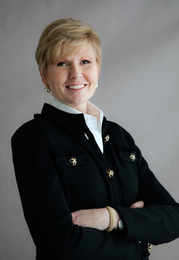Click here to listen to our newest addition: Boardrooms’ Best Podcast.
 By Nancy May, CEO, BoardBench Companies.
By Nancy May, CEO, BoardBench Companies.
It’s time to fill another vacancy on your board. You’ve laid out what you have and what you don’t have, and where you want the board to go. You’ve also assembled a “robust” list of candidates to start with.
Now comes the hard part: assessing who you’ve got. But how? When it comes to evaluating individual candidates I like to start with the three “A”s: aptitudes, attitudes, and attributes.
 Attitudes: How do you measure motivation, viewpoints, dedication, loyalty, open-mindedness, tolerances, curiosity, thirst for knowledge, etc.? These are not so easy to pin down. Best way to start is to establish a baseline for what you seek in all directors. Then push the level of comfort up a bit. What helps is to understand what incumbent attitudes have not worked well for the board in the past (the snoozers, whiners, passive aggressors – you know what and whom). A director peer evaluation can improve on what you have, cull what you can’t, and even help backfill with better directors.
Attitudes: How do you measure motivation, viewpoints, dedication, loyalty, open-mindedness, tolerances, curiosity, thirst for knowledge, etc.? These are not so easy to pin down. Best way to start is to establish a baseline for what you seek in all directors. Then push the level of comfort up a bit. What helps is to understand what incumbent attitudes have not worked well for the board in the past (the snoozers, whiners, passive aggressors – you know what and whom). A director peer evaluation can improve on what you have, cull what you can’t, and even help backfill with better directors.
But how do you get at how a person thinks? You do it face to face. Few things works better. A good interviewer can peel back the layers and get past most practiced actors’ facades, if armed with good visual perception, objectivity, and a heaping portion of surreptitious caginess in the questioning. I will give you a hint here: a person’s attitudes will come out in the way they see themselves, what they like and don’t, and how they justify what they do and how they decide.
Some boards have time bombs sitting on them. Sometimes they stay dormant, sometimes they blow — dramatically. If that ever happens to you, you’ll probably take your own collateral damage very personally.
So, how do you assess the quality of person’s character? Look for a baseline? Some boards put required director characteristics into their governance principles. But this is mostly done to cover the board against director transgressions. It’s not always a useful road map for candidate selection. Instead, think about what kind of person you
want sitting next to you making the tough decisions. Start with that, and you can begin your detective work. This kind of due diligence comes from scouring the records and speaking with people: colleagues, competitors, friends, family, and even foes. A person’s character leaves tracks throughout their professional career. It comes out over time in what they’ve said, how they said it, what they did, and how they did it. The measure of one’s character comes not from what they think of themself, but rather from what others think of them. The opinions of those others are key. You can get a better assessment of someone’s
character from a broad cross section of opinions from those whose lives were impacted on by someone, taking in the best and worst said. Reference checking is a must, but only the barest of beginnings. Candidates don’t give you references from people who dislike them.
Yet most professionals have trodden (purposefully or accidently) on someone’s toes in their career. Detractors are out there, you can find them, and their opinions may add balance to your assessment. References can, themselves, provide even more references. Those who extol a person’s virtues should back it up with specifically remembered situations, just as critics should. Personal and other close relationships should also be canvassed as needed. No one is perfect. You need to know the imperfections, who really appears solid and who may not be.
There’s not enough room here to talk more about the “deep dive” into a candidate’s background, head, and reputation. Suffice it to say that it can and should be done, even though it’s not easy. There are those who are really good at this, if you think you may not be. No shame in that. I do deep candidate vetting for clients and find that a second pair of eyes can be very helpful for peeking under the hood.


